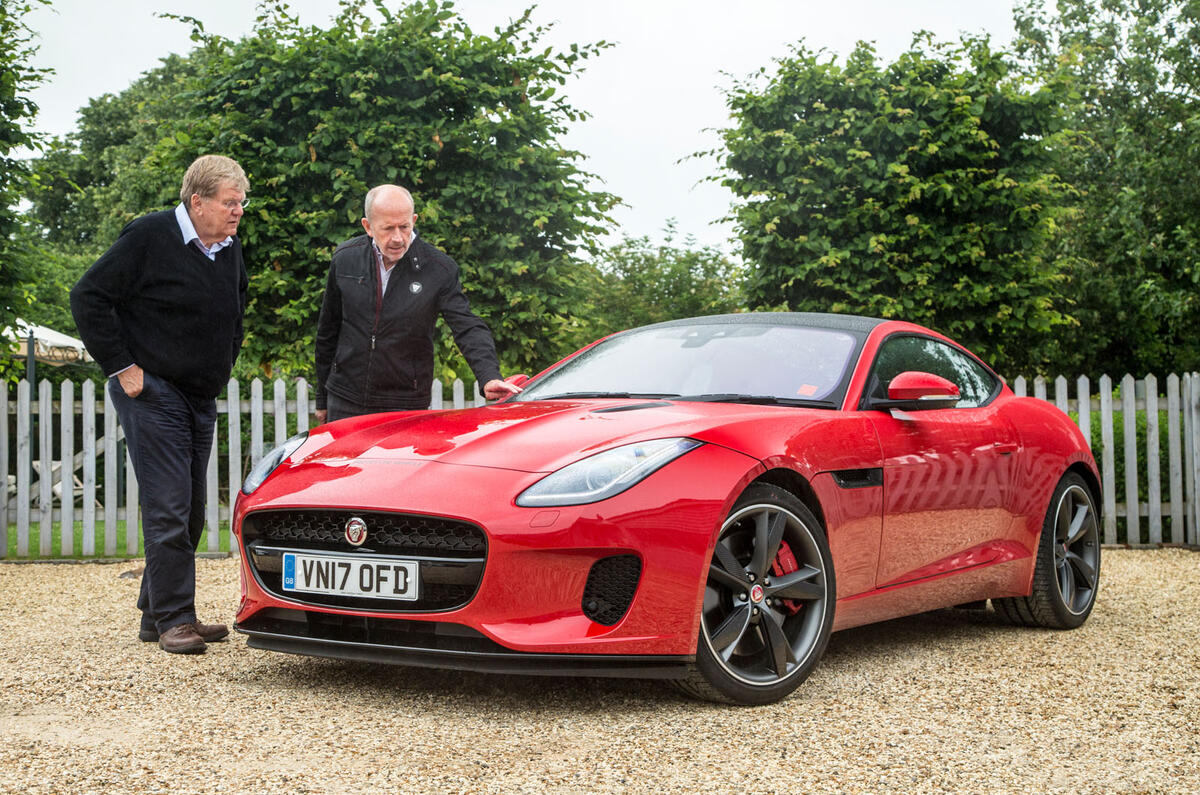Two things, above all, needed proving as I took to the quiet, sinuous roads of Warwickshire, sitting in the passenger seat of the latest four-cylinder Jaguar F-Type with ‘Jaguarness’ guru Mike Cross at the wheel.
One was that it was quick enough to honestly be classed as a serious performance Jaguar; the other that it sounded like it.
First ride: four-cylinder, 296bhp Jaguar F-Type
Proof came quickly. The rear wheels chirped and then big thrust instantly established itself in the small of my back, relieved in five or six nano-instants as the Quickshift gearbox picked up the next ratio at 6500rpm.
The noise was different from the seamless, racebred yowl of Jaguar’s V6 - gruffer and tougher, with a slightly hoarse throb that sounded powerful - and about as far away from expectations of a 2.0-litre four-pot as it’s possible to get. I really liked it.
After a few minutes, Cross voiced my own opinion: that this car had more power than a decent driver could reasonably use on public roads in Britain. With all those ratios and all that low-down torque, the F-Type seemed to respond instantly to any demand, and with an inspiring sound. You could hear the engineering and I was impressed.
If I were a buyer in 2017, I’m still not certain I’d have the courage to opt for the four-pot over a proven mill that’s only a bit more expensive and 50% bigger, even though I’d doubtless feel I should. Yet, as Cross pointed out, downsizing is the future, even in cars this performance-focused.








Join the debate
Add your comment
The performance is not the
But, I think people have lost their ears this decade.
We have lost the music of the engines : it's the same for BMW, Alfa, Porsche...
I remember 10 years ago we could ear specific or nice sounds in the streets (I don't talk about prestigious cars, but many BMW or Mercedes had 6 cylinders). It's definitively finished.
Hot-hatch engines
Brexit spec......?